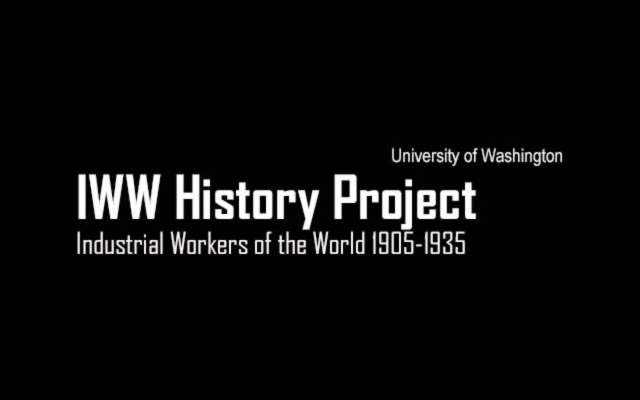
Mapping IWW campaigns, strikes, arrests, persecution
History Site
Interactive maps covering campaigns, strikes, arrests and events involving IWW.

A collection of interactive maps covering events, strikes, campaigns & more from 1905-1935.
Interactive maps covering campaigns, strikes, arrests and events involving IWW.
Teaching in St. Paul Public Schools was a destination for me because I knew our schools had a gorgeous student population that reflected our world. I also found an amazing group of dedicated, talented colleagues I am honored to work alongside and represent.
Women Have Always Worked: Fighting for Equality: 1950–2018.
An exploration from an online edX course.
This bibliography contains a number of titles dealing with “workers,” the “world of work” generally, and “labor law” in particular, so as to account for some of the more compelling reasons we should assiduously attend to the complex economic and moral questions (the former often…
The Wisconsin Labor History Society is a volunteer-based organization working to record and catalogue the historical labor events of Wisconsin.
This project produces and displays free interactive maps showing the historical geography of dozens of social movements that have influenced American life and politics since the start of the 20th century, including radical movements, civil rights movements, labor movements, women’s movements, and more. Until now…
The Freedmen and Southern Society Project was established in 1976 to capture the essence of that revolution by depicting the drama of emancipation in the words of the participants: liberated slaves and defeated slaveholders, soldiers and civilians, common folk and the elite, Northerners and Southerners.…
In 1977, a bill to better enforce the National Labor Relations Act (NLRA) sailed quickly through the House of Representatives. Facing a Senate filibuster, its proponents weakened the proposal—making it, according to historian Jefferson Cowie, “lean, moderate, and basically unchallenging to the corporate order.”
This project, directed by Peter Cole of Western Illinois University and Franklin N. Cosey-Gay of the hicago Center for Youth Violence Prevention, is working to document and commemorate the 1919 riot with an online exhibit that includes biographies of those killed. Visit site
Created in partnership with Education Development Center, Zoom In features 18 skill-focused, document-rich lessons on social history topics that address every era of U.S. history. These interactive inquiries engage students in reading documents closely, gathering evidence, and writing an argumentative or explanatory essay. Each lesson…